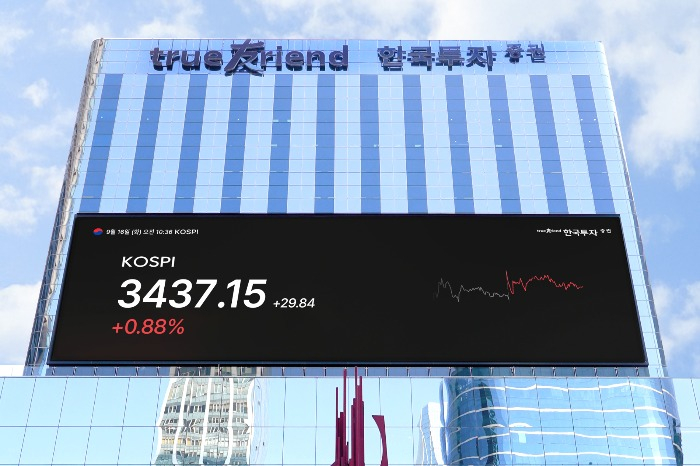South Korea has authorised two of its largest securities homes because the nation’s first operators of a brand new investment-banking product designed to channel extra non-public capital into company lending and rising applied sciences.
Mirae Asset Securities Co. and Korea Funding & Securities Co. have been designated on Wednesday as the primary securities companies approved to supply funding administration accounts, or IMAs, eight years after the framework was first created.
Regulators anticipate every agency to lift greater than 35 trillion received ($24 billion) by means of the brand new platform, increasing the availability of threat capital out there to startups and high-growth sectors.
The designation sits on the prime tier of Korea’s complete monetary funding enterprise regime, which grants broader investment-banking powers to securities homes with at the very least 8 trillion received in fairness capital.
IMAs enable companies to handle discretionary portfolios whereas guaranteeing shopper principal, with at the very least 70% of belongings allotted to corporate-finance and venture-related investments.
The approvals mark one of the vital consequential steps in Seoul’s marketing campaign to construct homegrown companies able to competing with US funding banks.
By pairing IMA authority with expanded funding instruments, regulators are giving Korea’s largest brokers the balance-sheet scale and suppleness to maneuver deeper into company finance, enterprise lending and cross-border deal-making, bringing the federal government’s long-standing ambition to domesticate a “Korean Goldman Sachs” nearer to actuality.
A BANK-LIKE FUNDING TOOL
Mixed with the authority to challenge short-term unsecured notes, IMAs are anticipated to permit the nation’s largest brokers to lift funds of as much as 300% of their fairness capital, considerably increasing their lending and funding capability.
Corporations should commit 1 / 4 of those funds to threat capital underneath authorities pointers.
Monetary Companies Fee Chairman Lee Eog-weon underscored the necessity for such funding in a current assembly with business CEOs, noting that industries akin to synthetic intelligence and quantum science “require lengthy growth cycles and large upfront prices,” and that “survival in early-stage technological competitors hinges on the provision of threat capital.”
MORE APPROVALS EXPECTED
NH Funding & Securities Co., which not too long ago raised capital to exceed the 8 trillion received threshold, is anticipated to comply with as the following IMA-designated agency.
Regulators say functions are progressing rapidly as Seoul seeks to broaden nonbank funding channels for early-stage know-how firms.

Individually, the Securities and Futures Fee authorised Kiwoom Securities Co. as a 4 trillion won-tier mega funding agency on the identical day, clearing it to launch a short-term be aware enterprise.
A number of different securities homes, together with Samsung Securities Co., Meritz Securities Co., Shinhan Securities Co. and Hana Securities Co., stay underneath evaluation.
Brief-term notes, which mature inside a yr and are backed by the companies’ credit score, enable brokers to lift as much as twice their fairness.
The low-cost funding usually flows into company loans, investment-grade credit score, mezzanine financing and project-finance offers.
Solely 4 companies, akin to Mirae Asset, Korea Funding & Securities, NH Funding & Securities and KB Securities Co., at the moment function available in the market.
If remaining functions are authorised, the variety of licensed issuers may rise to 9, reshaping competitors in Korea’s investment-banking sector.

PROFIT IMPACT AND MARKET SHIFT
Analysts anticipate IMAs to widen the profitability hole between Korea’s largest securities companies and mid-tier brokers.
Yuanta Securities Co. estimates that Korea Funding & Securities may elevate round 10 trillion received by means of IMAs, producing roughly 100 billion received in extra annual revenue underneath conservative assumptions of a 1-percentage-point margin.
Trade executives say IMA operations demand substantial capital and complicated risk-management methods, benefits that favor Korea’s greatest brokers and will speed up market consolidation.

